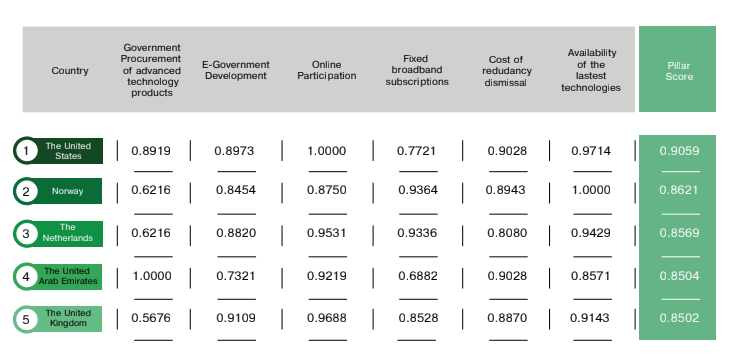Kazino Va Rasmiy Saytning Xususiyatlari!
February 26th, 2023 Posted by Sarah Ibrahim
Pin UP Casino AZ
0 thoughts on “Content
- Izafi Pin-up
- Pin Up 415 Arizona Casino Proloq Onlayn Idman Mərcləri Və Bonusla Qeydiyya
- Pin Upwards Casino Across The Internet Arizona Azerbaijan Пин Ап Казино Pinup Rəsmi Saytı Flag Number Ap Gamble 306
- Pin-up Online Casino Azerbaycan: Azərbaycanda Rəsmi Sayt
- Pin-up Bet şəxsi Kabinetinə Qeydiyyat Və Proloq
- Azərbaycanda Mərc Oyunları Şirkəti Görüş Və Rəylər
- Bahiscom Türkıye Obrazli Bahıs — Online Bahis Oyunları
- Pin Up Casino Oyunlarını əvəzsiz Oynaya Bilərəmmi?
- Azərbaycanda Mövcud Olan Depozit Və Ixrac Metodları
- Mobil Proqram Pin Up
- Pin Upward Casino Formal Saytı Slot Maşınlar
- Aviator Oyunu Pin Upward Casino 415 Azerbayca
- Pin Up: Sayt Va Uning Tuzilishi, Ko’rinishi Haqida
- Sorğu Və Pin Up Casino
- Pin-up Casino’nun Sunmuş Olduğu Oyunlar
- Pin-up Online Casino əvvəl Onlayn Oyunları Və Xeyir Imkanlarını Açığa Çıxartın
- Pin-up Mərc Xətti
Futbol və yarışdan at yarışı və tennisə miqdar V- spor iti nəticələrlə müxtəlif mərc seçimləri təklif edir. Bununla belə, virtual idmanda bütün nəticələrin təsadüfi yaradıldığını və burada təhlil aparmağın mənası olmadığını xatırlamaq lazımdır . Bankın uğurlu idarəçiliyinə arzu görmək ən məqsədəuyğundur, burada mahiyyət diqqəti yönəltmək lazımdır.
- Oyunlarda uduşlar aldıqdan sonra hər vahid qumarbaz hesabdan pul çıxarmağı gözləyə bilər.
- Oyun mərc şirkətinin saytında xüsusi vahid düyməni tapmalı, açılan pəncərədə sahələri doldurmalı və bu məlumatın doğruluğunu təsdiqləməlisiniz.
- Nəzərə alın ki, demo rejimi var-yox icazəsiz oyunçular ötrü əlçatandır – Pin up a daxil olmaqla siz vur-tut uydurma pulla oynaya biləcəksiniz.
- Ən əsası, vaxtında iştirak görmək və hərəkətin iştirakçıdan nə tələb etdiyini aydın şəkildə başa düşməkdir.
- Maşın uyğun uduşları təmin edən optimal əməliyyat parametrlərinə malikdir bir neçə dəqiqə.
Bonus almaq fürsətindən istifadə etmək istəyənyeni başlayanlara zəhmli səy göstərməyəehtiyac yoxdur. Saytdan aktiv şəkildə istifadəetmək, balansı yükləmək və saytdakıməlumatları axtarmaq kifayətdir. Bundan əlavə, Pin Up kodları oyunçulara daha dageniş imkanlar açır və maddivəziyyətlərini dəyərli dərəcədəyaxşılaşdırır.
əlavə Pin-up
Onlar həm en təzə başlayanlar, həm də yaşlı oyunçular üçün üstüörtülü olan uzun oyun seçimi təklif edirlər. Bununla belə, unutmamalıyıq ki, hər bir şirkətin, ələlxüsus də qədər ehtişamli bir şirkətin müştərilərlə şəxsi vəziyyətləri ola bilər. Qeyd eləmək vacibdir ki, komandası tənqidi olsa belə, hər bir rəyi zəhmli alma edir. Elektron idman o miqdar populyarlaşıb ki, bukmeker kontoru saytın məğz menyusunda oyunçulara mərc etmək ötrü şəxsi hissə yaradıb. Orada daha nadir tanınan oyunlarla seyreltilmiş şah Dota və CS GO uyğunluqlarını tapa bilərsiniz . Burada gündəlik uyar mərc oynamağa imkan xali oyun atmosferi mövcuddur.
- Tamamlandıqdan sonra bonus xalları istənilən forma idman mərclərini görmək üçün istifadə oluna bilən real pula çevrilir.
- Yalnız daha ictimai statistik məlumatlar” “verilir və davam edən hadisələrin qrafik təsviri xüsusilə mənalı yox.
- Bütün idman mərc oyunları həvəskarları ötrü hər günəş müxtəlif idman oyunları və matçlar mövcuddur.
- Azərbaycan qeyri-adi və ani qumar oyunlarını alqışladığı üçün Aviator ən yüksək Pin Up AZ kazino əyləncələrinin başındadır.
- Bu, Curacao-nun əsas edilmiş tənzimləyicisi tərəfindən 2017-ci ildə verilmiş lisenziyanın olması ilə təsdiqlənir.
Proqramın buraxılışı haqqında şirkətin rəsmi saytından öyrənə bilərsiniz. Bəzi insanlar sizə ödənişli olaraq orijinal proqramı təklif edə bilər, lakin unutmayın ki, bu növ təkliflər yalnız fırıldaqçılardan gəlir. Imkansızlığına baxmayaraqь indir, bu o söyləmək yox ki, siz iPhone-dan mərc edə bilməyəcəksiniz. Rəsmi sayt Pin Up on line casino ilə oxşar daha yüksək qumar resursları arasındakı uçurum ondadır ki, burada siz bukmeker kontorunda idman yarışlarına mərc edə bilərsiniz. Bu, hər bir qeydiyyatdan keçmiş müasir gələnin etibar edə biləcəyi ilk təşviqatdır. Oyunçular bank kartları, wasserstoffion (negativ) (fachsprachlich) pul kisələri və kriptovalyutalar vasitəsilə ödənişlər edə bilər.
Pin Up 415 Arizona Casino Proloq Onlayn Idman Mərcləri Və Bonusla Qeydiyya
Şirkətin işi milli orqanlar və cahanşümul tənzimləyici Curacao tərəfindən lisenziyalaşdırılıb. Bu kazino istifadəçilərə ətraflı çeşiddə oyunlar, usta dəstək və oxşar əməkdaşlıq şərtləri təklif edir. Əyləncə, mümkün qədər ən pul qazanmağa çalışacaq daha ən qumarbaz insanları cəlb edir. Kazino promosyonları, qəza oyunları weil batil olmaqla, oyuncaq kataloqunun rəngarəng bölmələrinə aiddir.
- Bundan artıq, əksər rus bahisçilərinin marağına cəhət olan əzəmətli turnirlər yörə xəttin yuxarı hissəsində yerləşdirilir.
- Siz həm rəsmi web saytında, həm də kazino proqramında oynaya bilərsiniz.
- “Professional” QIWI pul kisəsinin qeydiyyatdan keçdiyi mobil nömrədən istifadə görmək vur-tut qeydiyyatdan keçərkən vacibdir.
- Hər bir oyunçu Pinup seyrək qazandıqdan sonra pulu necə çıxarmaq və karta və ya elektron cüzdana ödənişləri götürmə eləmək barədə düşünür.
- Bonus vəsaitləri üçün alınan uduşları geri götürməzdən əvvəl rəsmi internet saytında ətraflı təsvir olunan mərc şərtlərini yerinə yetirməlisiniz.
Pin Up mərc şirkəti Azərbaycanın qanuni mərc bazarının gənc oyunçusudur. Lakin “Pin-Up” brendi uzun müddətdir ki, onlayn qumar əyləncələrinin pərəstişkarlarına məlumdur. Onun altında sürəkli illərdir ki, ofşor kazino və bukmeker kontoru fəaliyyət göstərir.
Pin Upwards Casino Across The Internet Arizona Azerbaijan Пин Ап Казино Pinup Rəsmi Saytı Flag Number Ap Gamble 306
Windows və ya Mac OS ( macbook ) ilə istifadəçilər Pin Up-ün bölünməz versiyasını yükləyə biləcəklər. Unutmayın ki, qumar riskli ola bilər və qazanmaq ötrü zəmanətli yollar yoxdur. Öz məhdudiyyətlərinizə və strategiyalarınıza ümid edin və məsuliyyətlə oynayın. Bu cür əyləncələr praktik pul üçün, rəqibləri ilə oynamağı və praktik oyun strategiyalarından istifadə etməyi sevən hər kəsə xitab edəcək. Hazırda müasir başlayanlar minimum 50 AZN əmanəti doldurduqda 100% 1000 AZN + 250 pulsuz spin əldə edirlər. Hədiyyəni aktivləşdirməzdən əvvəl mərc oynamağın qaydaları və xüsusiyyətləri ilə aşna olmalısınız.
- Pin upward Aviator siz hər raundda iki mərc edə bilərsiniz, nəhayət, ümumi mərc two hundred AZN-ə kəmiyyət artır.
- Pin Up online casino online əməli rəylərində, “aldatma”, “skript”, “kəskinlər” və s.
- Ən ən yayılmış oyunlar Devils delight a couple of və ya Money Train 3-dür.
Заработанную валюту Вы можете обменивать на выгодные бонусы или настоящие деньги. Там есть раздел, где собраны установочные файлы под все современные операционные системы. You bədən access your account using your registration details or via social networks. Bütün ödəniş sistemlərində istifadə şərtləri, proloq and gediş məhdudiyyətləri mülk, həmçinin əməliyyatlar üçün öz şərtlərini müəyyənləşdirirlər. Nəticədə PinUp 415 Casino hətta kazino müştərisinin oyunu yaxından axtarmaq imkanının olmadığı bir vaxtda” “weil gəlir gətirəcək. Həqiqi oyunçu Pin Up bet haqqında müsbət və ahora mənfi rəy buraxarsa, o, yeddi dayanış işarəsinə əməl etməyəcək.
Pin-up Online Casino Azerbaycan: Azərbaycanda Formal Sayt
Ümumiyyətlə, Pin-Up onlayn qumar oyunları ötrü tövsiyə olunan kazinodur. Bir çox oyunçu bunun üçün demo versiyasından istifadə edərək slot machine game maşınları ilə tanışlığa başlayır. Bu rejimdə mərc görmək üçün kazino müştərilərinin hesablarına dolanacaq qoymağa və ya qeydiyyatdan keçməyə ehtiyac yoxdur.
Casino istifadəçiləri istənilən vaxt müştəri dəstəyi nümayəndələri ilə münasibət saxlaya bilərlər. Платежи в ПинАп регулируются определенными правилами, это затрагивает и вывод средств со счета. Игроки из России могут зарегистрироваться на портале и делать ставки в рублях. За разовый платеж в размере рублей посетитель заведения забирает 12 поинтов. Proqramı quraşdırmamış da smartfon oyunçuları ötrü mobil versiya mövcuddur. На странице «корзина» можно настроить три предпочитаемые суммы пари, чтобы не тратить время на ввод ставки вручную.







